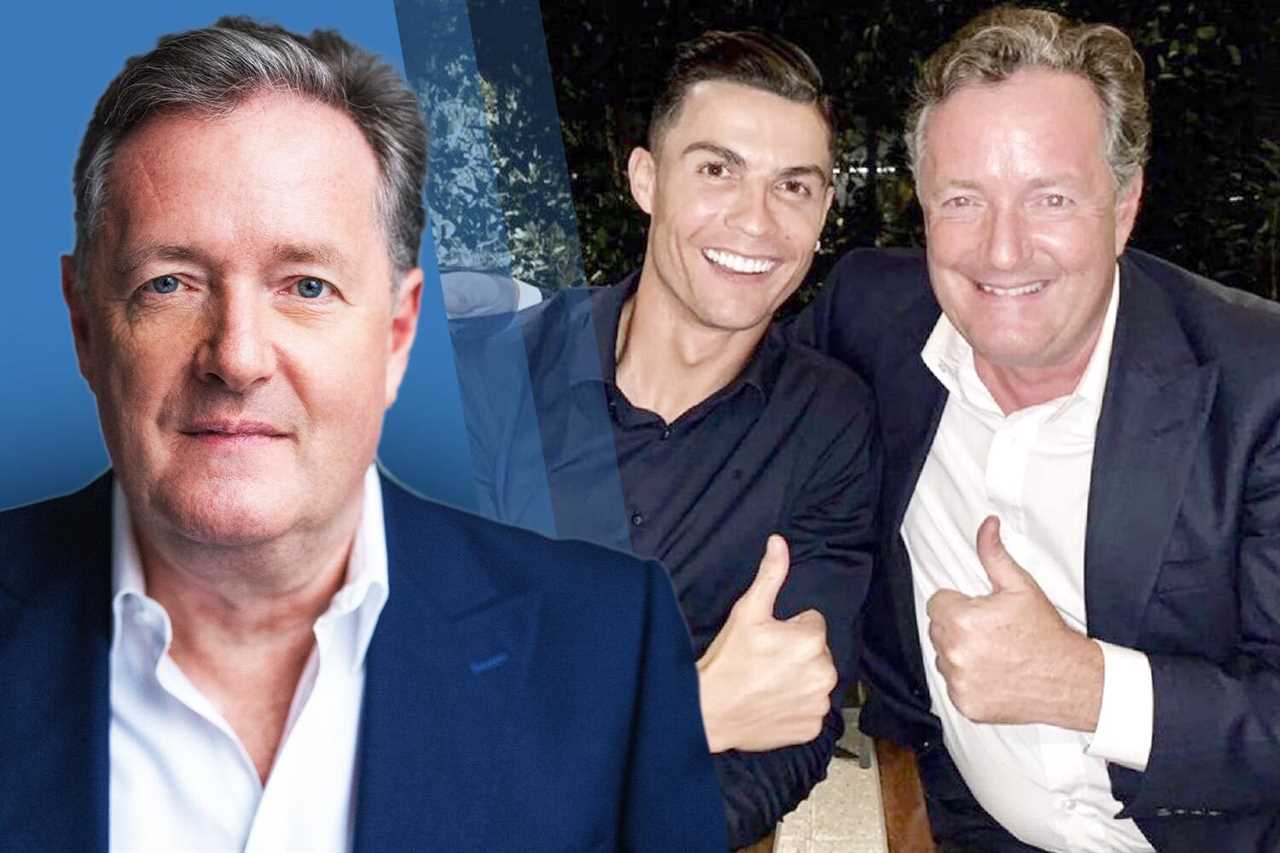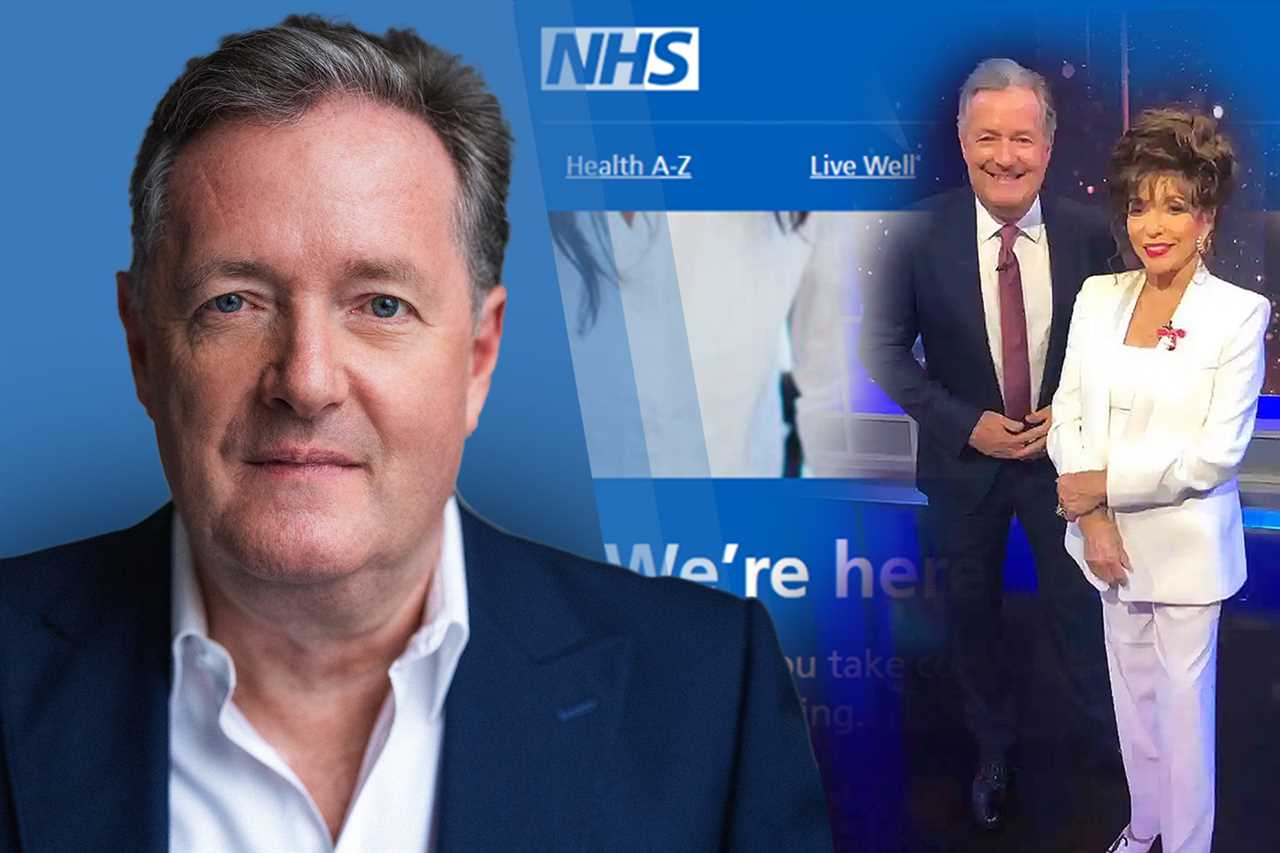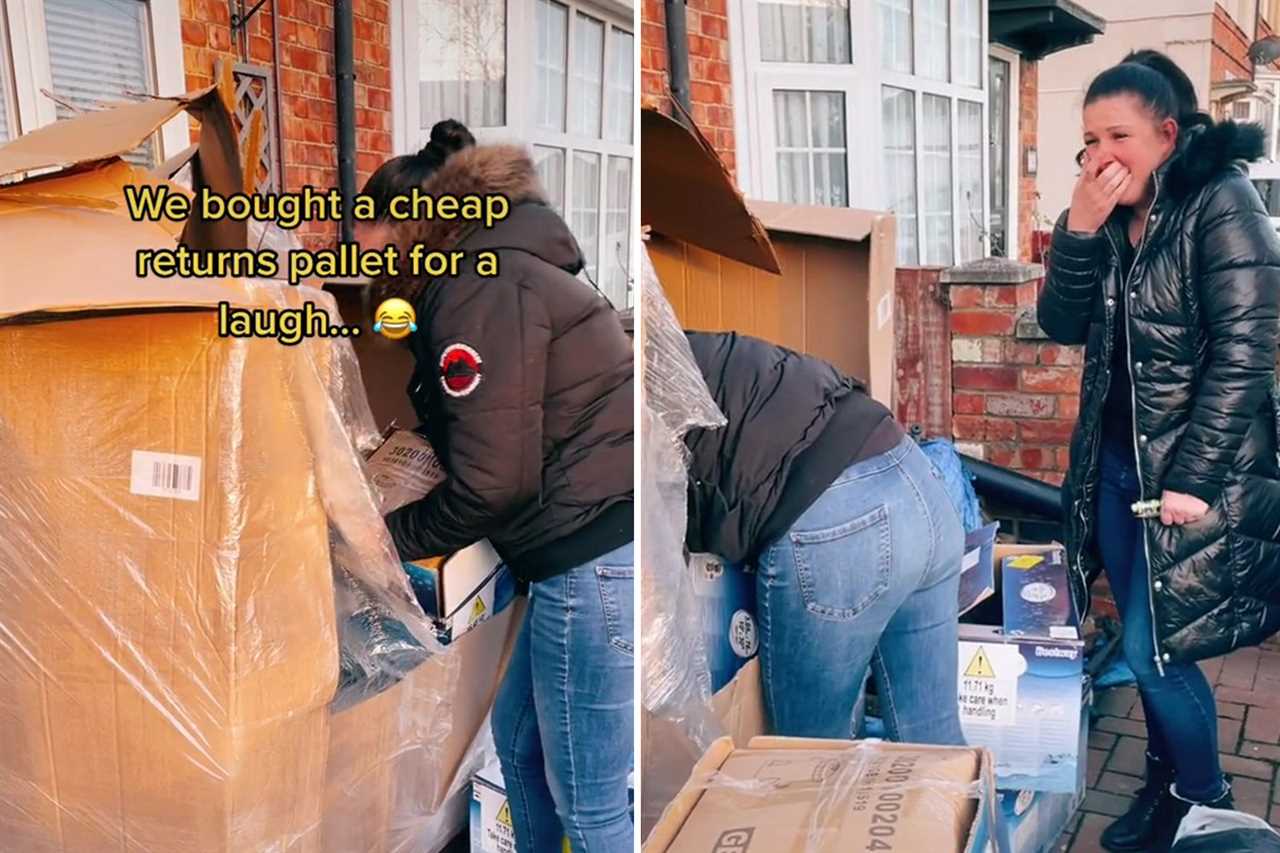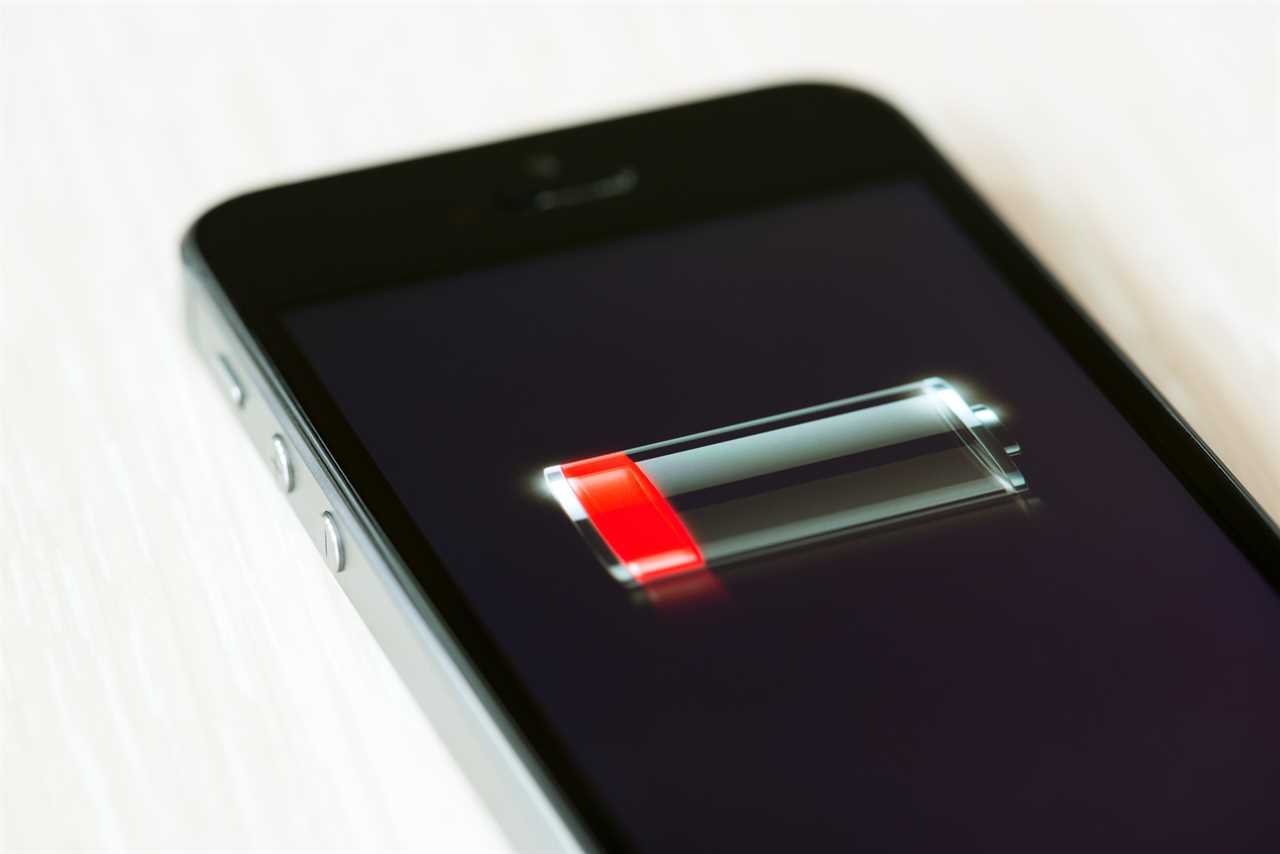
WHEN I first heard Prince Harry was making a speech to honour Nelson Mandela Day, my first, and indeed only, thought was this: why?
Of all the eight billion people on Planet Earth, is there anyone less qualified to invoke the memory of one of the greatest men in history?
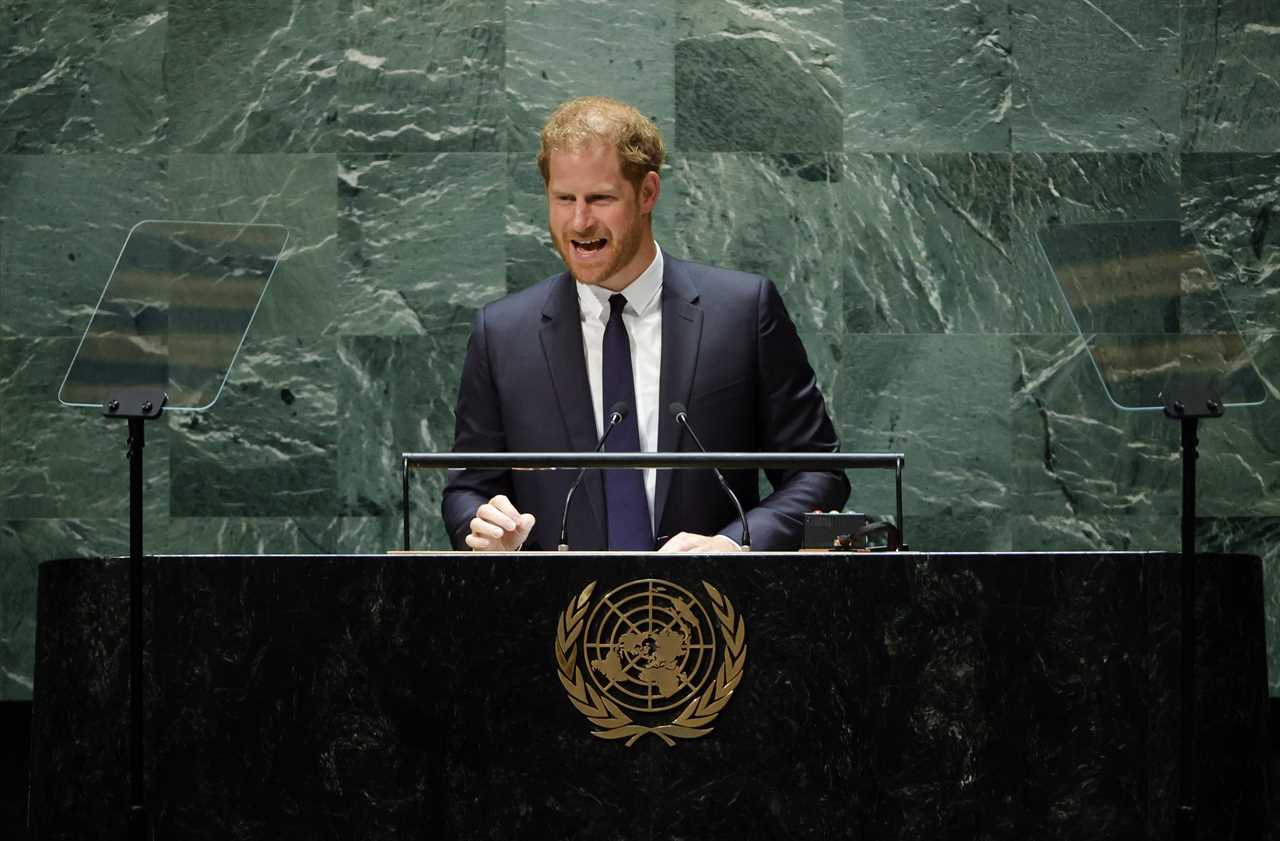
Prince Harry gives a lecture on global poverty to mark Nelson Mandela Day
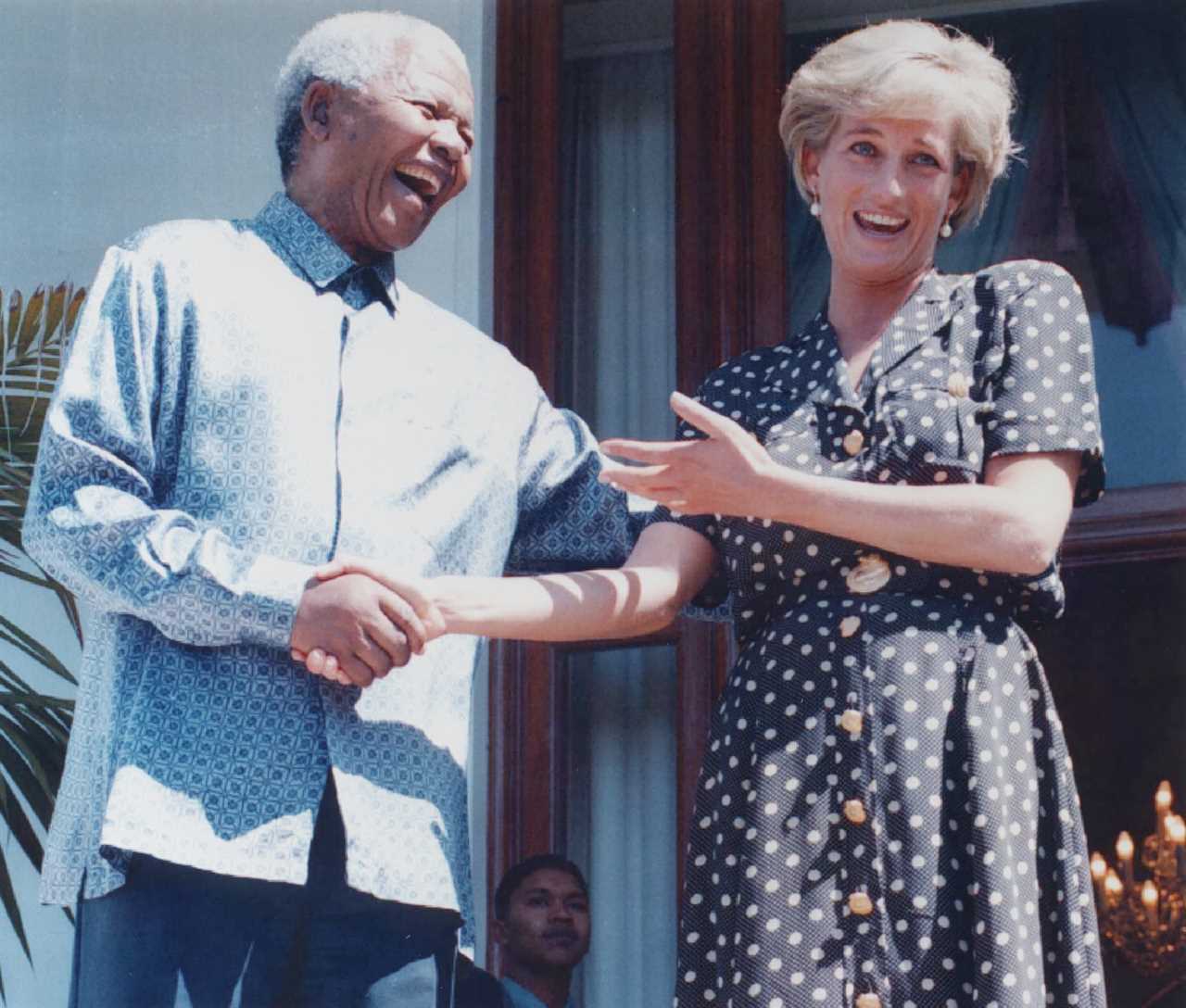
Harry’s late mother Princess Diana with Mandela in Cape Town in May 1997, months before her tragic death
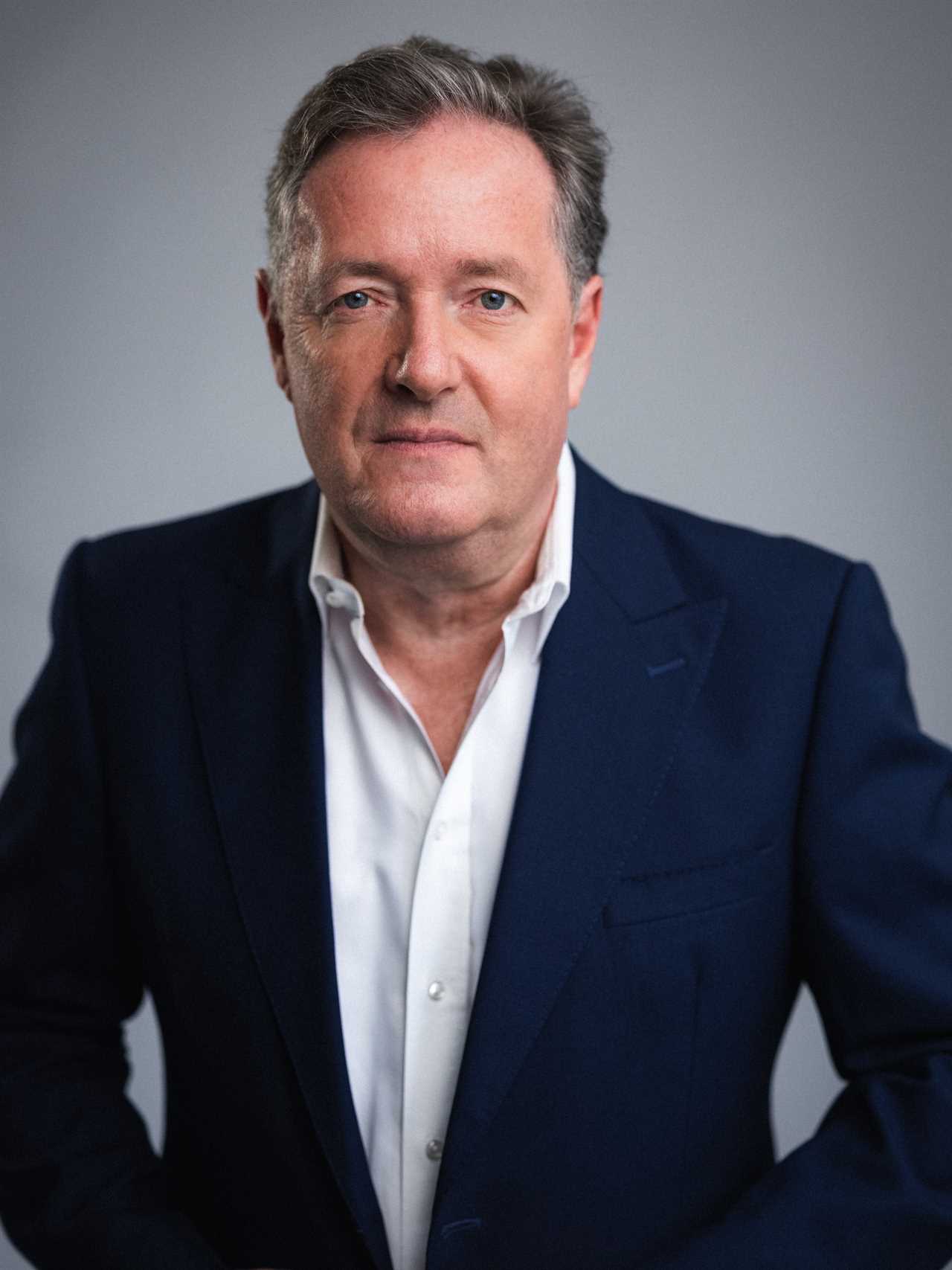
Piers says ‘is there anyone less qualified to invoke the memory of one of the greatest men in history?’
Mandela was fiercely intelligent, remarkably resilient, astoundingly courageous, devoted to his family and country, genuinely humble, highly principled, incredibly inspiring, and lit up any room he entered with a smile that warmed the world.
Harry, by contrast, is as dumb as a rock, breathtakingly arrogant, woefully hypocritical, deserted his family and country, is a permanently miserable whiny mood-hoover, doesn’t inspire me to open a crisp packet, and wouldn’t understand a principle if it slapped him round his haughty woke-ravaged chops.
It takes a special kind of brazen brass neck to stand up at the United Nations in New York, as he did today, and lecture the world about climate change when you constantly use luxury gas-guzzling private jets like a taxi service.
As Mandela’s grandson Ndaba told me in an exclusive interview for tonight’s Piers Morgan Uncensored, Harry should practice what he preaches just as Nelson always did to such powerful effect.
‘Every year we have the World Economic Forum,’ Ndaba said, ‘and you have all these heads of state coming in on their private jets, talking about climate change and yet they can easily do regional travel!
‘I think it’s time we hold our leaders accountable and really put their money where their mouth is and say if they truly believed in climate change, whether it be Prince Harry or a head of state… they have to lead by example.’
But Harry can’t do that because his whole life since meeting the equally disingenuous and virtue-signalling Meghan Markle, whose manipulative, controlling and cynically social-climbing streak is so comprehensively exposed in Tom Bower’s new book ‘Revenge’, has become a ridiculously two-faced sham.
There’s nothing he loves more, in his new capacity as renegade duty-devoid runaway royal, than getting up on his public preaching pulpit in front of the media he despises, but uses for constant self-promotion, to tell us how we should do the complete opposite to what he does.
But never has he quite plunged the laughable depths he did today when using Nelson Mandela’s name 20 times in one short speech to basically compare their lives as if they were in any way comparable given that Mandela spent 27 years incarcerated in a 6ft-by-6ft prison cell before becoming South Africa’s first black president.
Wanging on in that dreary humourless monotone voice about what a ‘painful’ year it’s been, Harry beseeched: ‘How many of us feel battered, helpless, in the face of a seemingly endless stream of disasters and devastation?’
Then he paused and added for full dramatic effect: ‘I understand.’
DO you, Your Royal Highness?
Watch Piers Morgan Uncensored weekdays on Sky 526, Virgin Media 627, Freeview 237, Freesat 217 or on Fox Nation in the US
I don’t think you have any understanding of what real suffering is, or what it really means to be a victim.
You live in an $11 million mansion in California, from where you and your wife trash your families on TV, and ruthlessly exploit your royal titles – given to you by the institution you say is cruel and racist – for tens of millions of dollars.
Invoking Mandela’s prison description of hope as ‘like a lifebelt is to a swimmer’, the deluded Duke said: ‘Let’s be honest, how many of us are in danger of losing those lifebelts right now?’
US?
You have to laugh, as, I’m sure, would Nelson Mandela himself who I met in 2003 in London when there was another war raging (Iraq) and another killer virus wreaking havoc (HIV), and whose passion was only matched by his great sense of humour.
And as did his grandson when I told him the recent semi-authorised book about the Sussexes was called Finding Freedom, and asked, my tongue firmly in cheek, if he saw any parallels between their journey and that of his grandfather whose autobiography was called Long Walk to Freedom.
‘Of course not!’ Ndaba chuckled, incredulously.
‘There are no parallels at all, Piers. Because one is obviously fighting for the dignity of black people against a vicious tyrant like Apartheid, as opposed to one finding their identity outside of a said institution.
‘Obviously, they are very different things… obviously, they were two worlds apart. They cannot be compared on any level for sure.’
No, they can’t, but that didn’t stop Harry trying very hard.
‘We can find meaning and purpose in the struggle,’ he whimpered.
‘We can wear our principles as armour.’
What struggle?
What principles?
Harry talked of ‘a few weaponizing lies and disinformation at the expense of the many’ without any self-awareness about the devastating damage his and Meghan’s still-unsubstantiated racism and mental health tirades about the royals have done to the reputation of the Monarchy.
And once again, he poked his unwanted nose into US politics, declaring: ‘From the horrific war in Ukraine to the rolling back of constitutional rights here in the United States, we are witnessing a global assault on democracy and freedom, the cause of Mandela’s life.’
Throughout his speech, Harry remained resolutely grim-faced.
He said Mandela ‘almost always had a smile on his face.’
Yet Harry never seems to smile much anymore.
The once hugely popular party-loving prince has become a lost, tormented soul who genuinely seems to think he’s some kind of modern-day Nelson Mandela here to save the world.
But when it comes to integrity, or surviving a genuine struggle, he’s not fit to sew one of Mandela’s brightly coloured shirts.
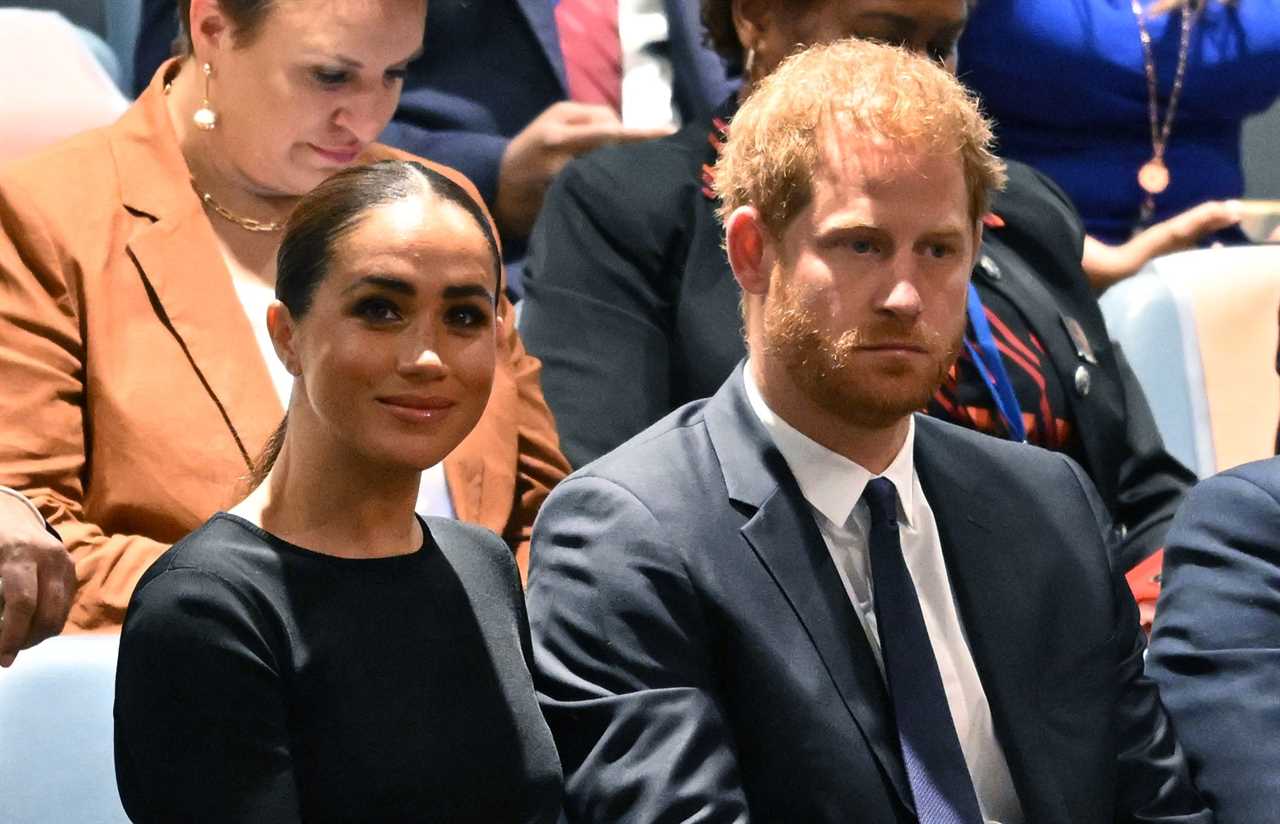
Prince Harry genuinely thinks he’s a modern-day Nelson Mandela here to save the world – he’s deluded, says Piers
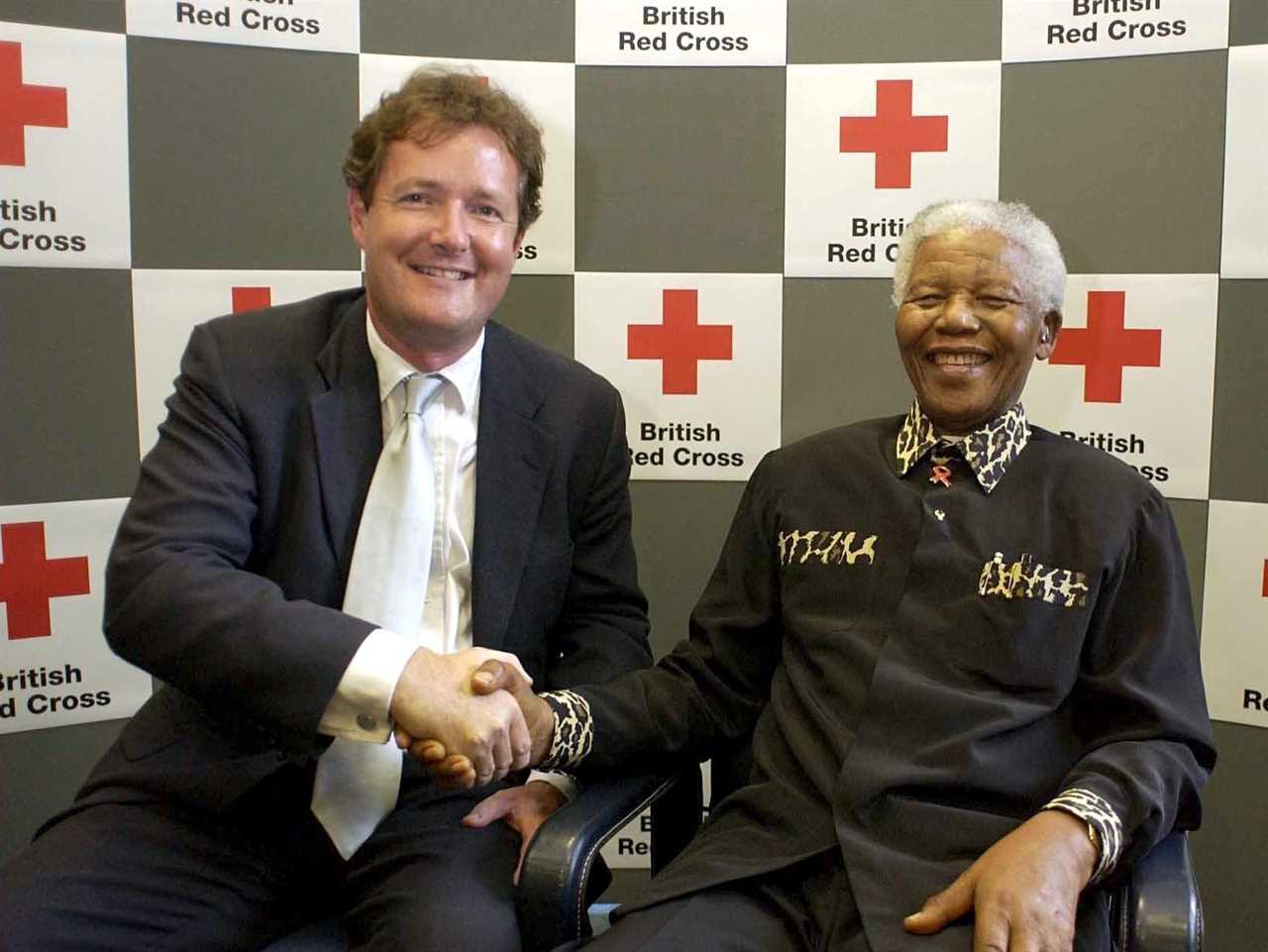
Piers pictured with Mandela in 2003
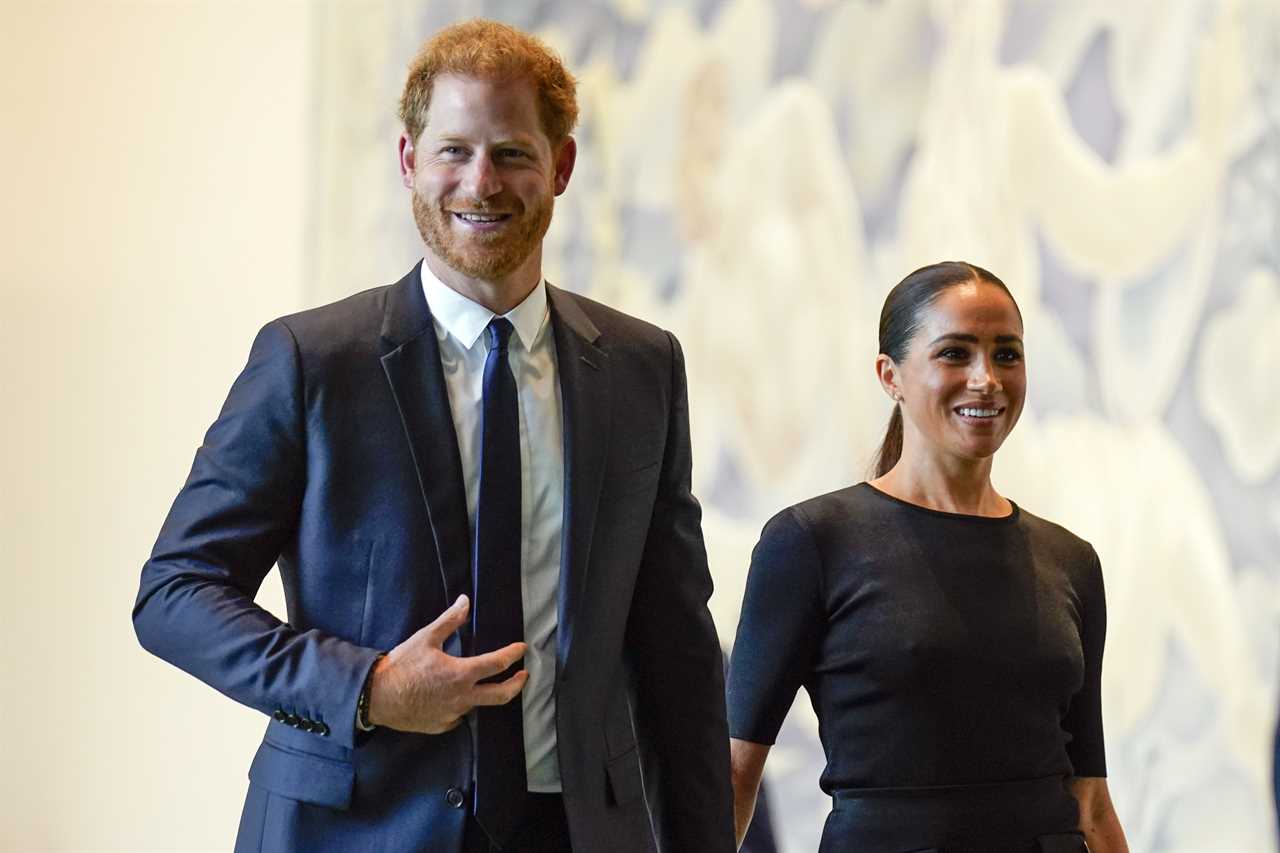
Harry and Meghan arrive at United Nations headquarters to mark Nelson Mandela International Day

